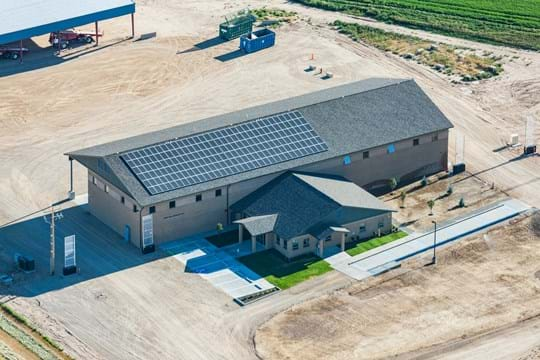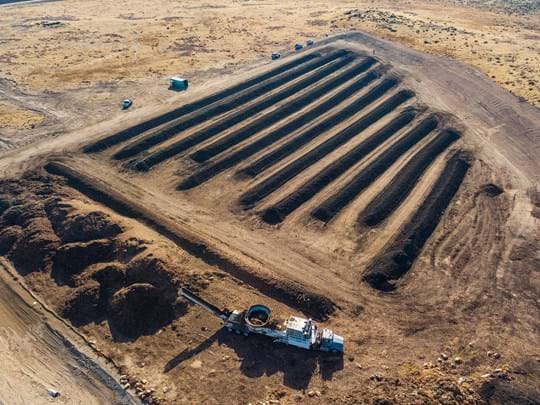The City of Boise owns and operates a 4225-acre farm on South Cloverdale Road, approximately 20 miles south of Boise. The "Twenty-Mile South Farm" (TMSF), receives the "biosolids" from the City's two main water renewal facilities: Lander Street and West Boise.
Dewatered biosolids are trucked to the site in trailers that hold approximately 30 wet tons per load. The treated biosolids are stored, then applied to fields for growing forage crops that are eventually sold to farmers. The site is managed to comply with all local, state, and federal regulations governing the reuse of biosolids.

